Gmail is one of the most well-known companies in the email provider space. Given its popularity, it seems like an obvious choice for business email. However, an issue has recently emerged regarding data privacy and security.
With stories coming to light about the relationships that big tech companies have with government agencies, people are becoming more concerned about the privacy of their data and are looking for alternatives. One option is Protonmail, which sells itself on its approach to security and data encryption.
In this article, we look at the features, performance, support, and pricing of both email services to determine which is the best business email provider.
- The best email hosting providers
- Best email clients: Free and paid apps and software
- The 30 most-asked email questions answered
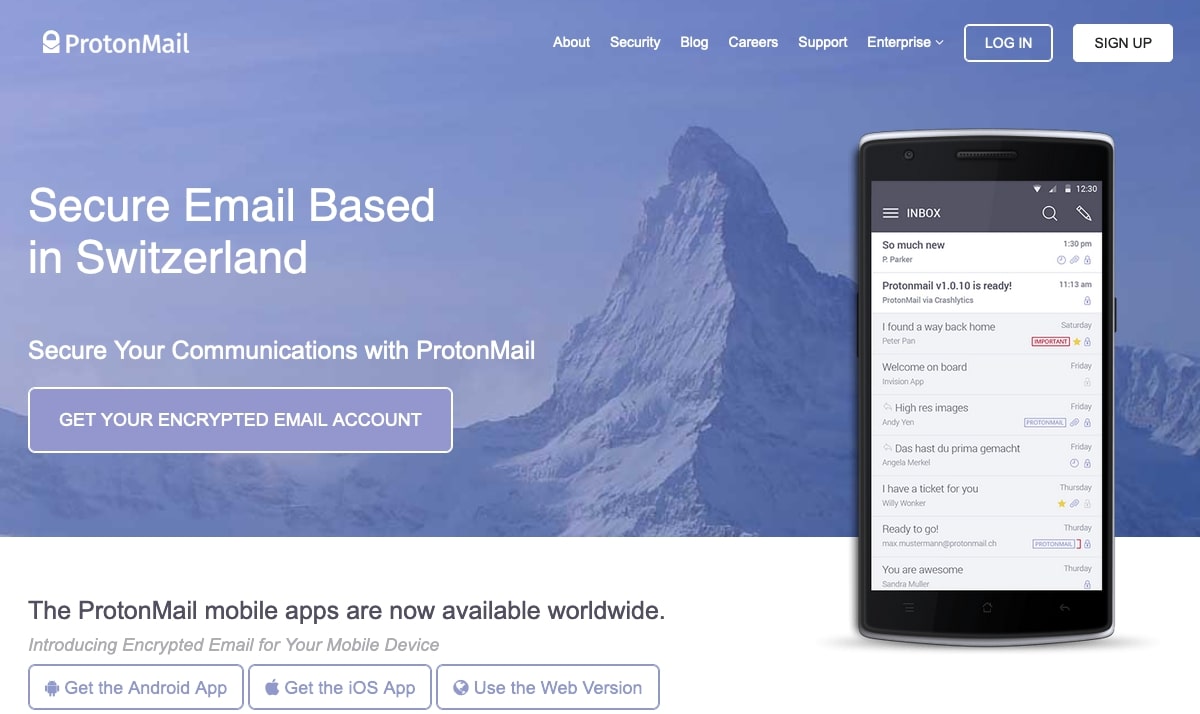
Features
One of the main requirements for an email provider to be considered for business use is that it enables the use of custom domains. Both Protonmail and Gmail provide this feature in their paid plans.
They also have similar user interfaces, with folders for the inbox, drafts, sent, etc. You can create your own folders for archiving emails in your preferred way and create filters to perform different actions for incoming mail.
While there are many similarities between the two, there are also a couple of features unique to each provider.
Protonmail’s main selling point is its advanced security: it has end-to-end encryption of all emails, the ability to encrypt emails with a password that the recipient needs to able to open the email, and emails that self destruct after a set time. The company and its servers are based in Switzerland, which has strict data privacy laws.
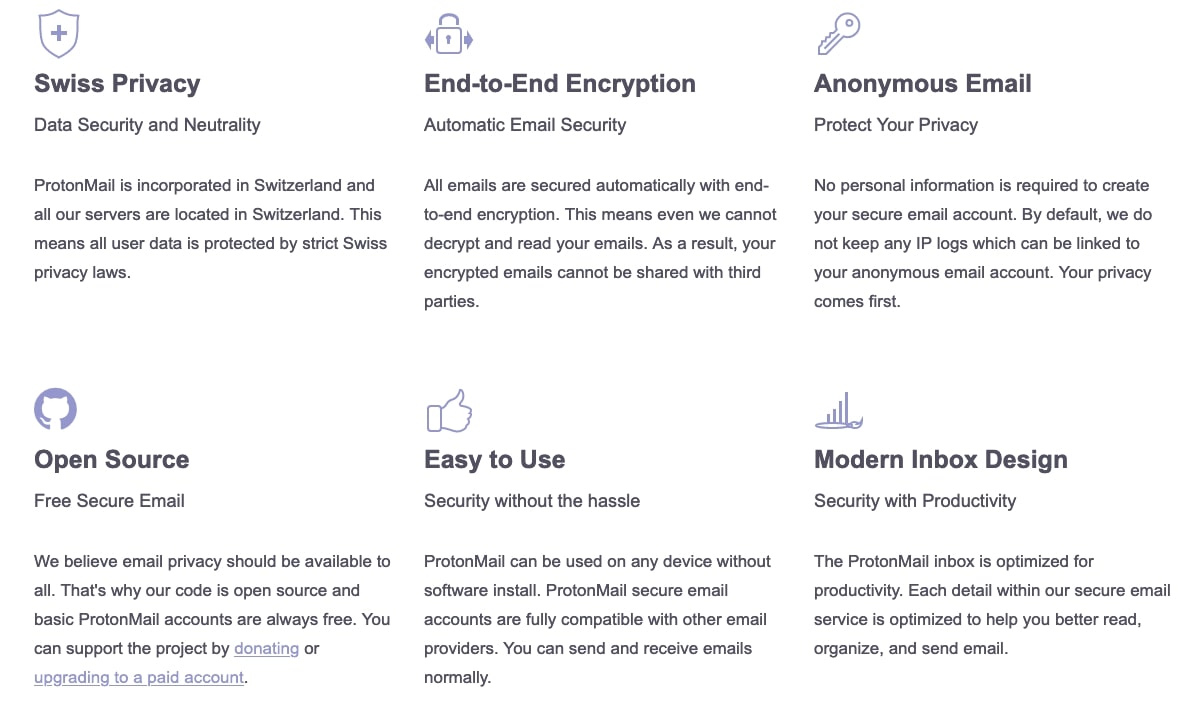
Gmail’s unique feature is the ability to start a video or text chat right from your inbox.
With so many similarities, which product has the best feature set will be determined by your attitude toward data security. If it’s of the utmost importance, then Protonmail will be the better choice, but that added security does come with a drawback.
Performance
Protonmail and Gmail both have apps for Android and iOS, or you can use the web version in your browser of choice on a desktop or laptop computer. Many desktop email clients, like Microsoft Outlook, Apple Mail, and Mozilla Thunderbird, support Gmail, but the same isn’t true of Protonmail. If you want a desktop app for Protonmail, it seems like the only option is a “wrapper” app, which you can download from Github.
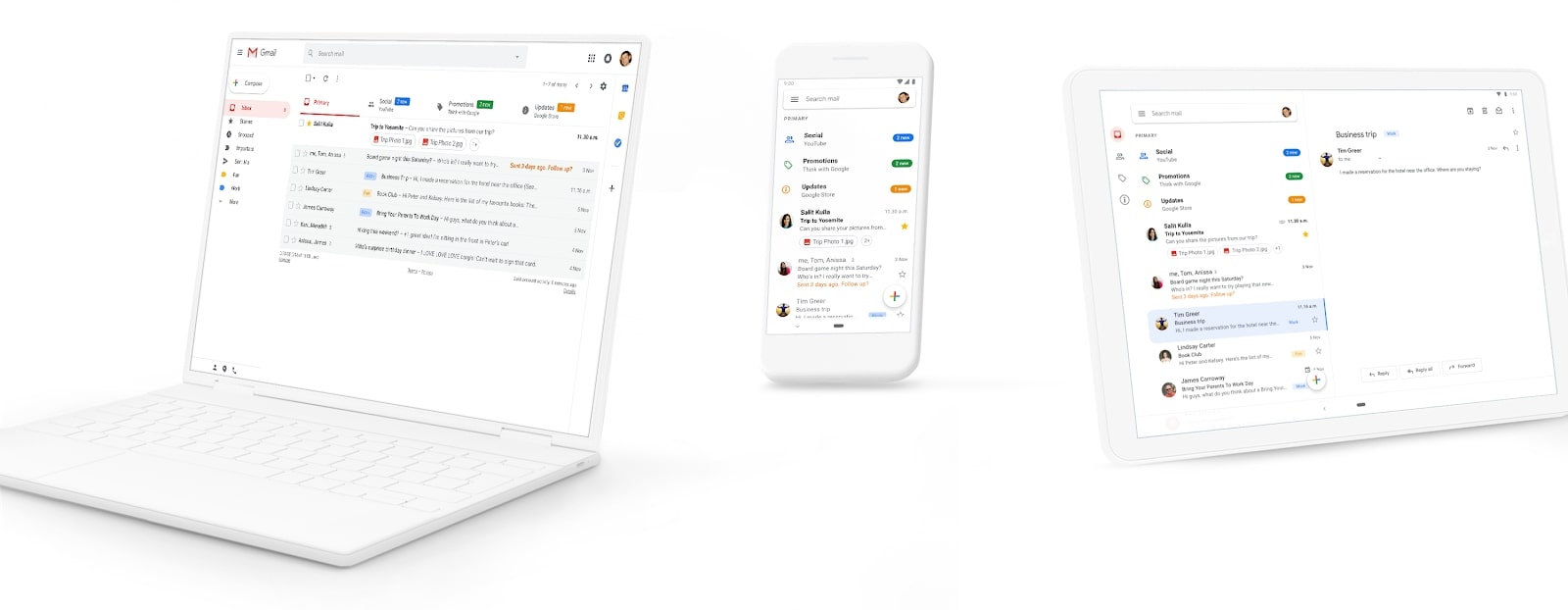
The lack of a dedicated desktop app is offset by the fact that Protonmail’s web browser user interface is similar to many desktop apps.
Protonmail comes up short of Gmail in another important area. As mentioned, Protonmail takes security very seriously. But while the encryption of your data is great for security, it’s not so good if you want to search for previous emails. In Gmail, you can search old emails by subject line, sender, recipient, date, folder, or contents.
Due to the encryption process, Protonmail doesn’t index your emails, which means you can’t search for anything in the contents. This makes the search feature in Protonmail far more limited than in Gmail. If this type of searching is something you use extensively, then you need to consider whether having the extra security is worth more than the missing functionality.
Support
Protonmail and Gmail both have knowledge bases with articles covering a variety of different topics. Gmail has a help widget within its mailbox interface where you can search for answers, whereas Protonmail links you directly to the support section of its website.
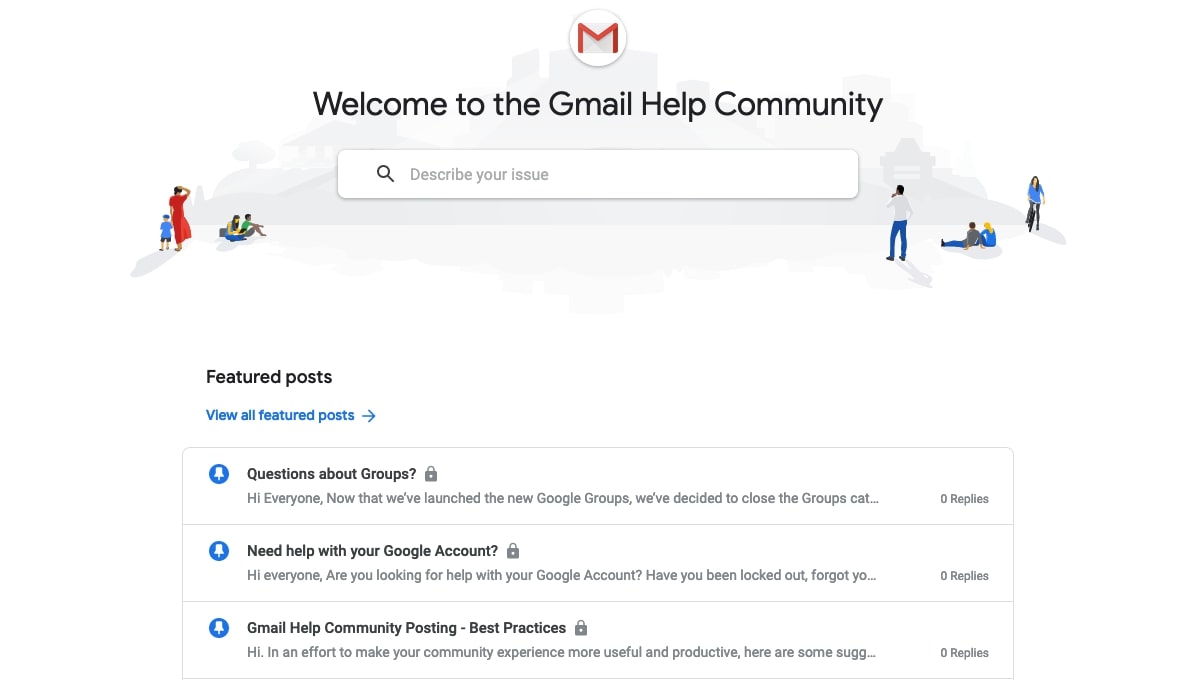
If you can’t find what you’re looking for in the existing help articles, you can contact the Protonmail support team either by sending an email or filling in a form. The level of support varies based on your plan.
Gmail itself doesn’t provide any direct contact methods, although you can ask questions in the Gmail Help Community forums. But as Gmail is part of G Suite, administrators have access to 24/7 phone, email, and chat support when logged in to the admin account.
Pricing and plans
Protonmail and Gmail both have free plans, but to use it for business, you’ll need one of the paid plans. Note that the paid version of Gmail is actually part of G Suite, which also includes a collection of other Google apps.
Protonmail’s prices go from $5/month for a single user up to $8/month for up to 5,000 users. Each user has 5 GB of storage and five email addresses. The single user has limits on the number of emails that can be sent per day. There is also a Visionary plan for six users and 20 GB of storage, which costs $30/month and includes ProtonVPN. All of Protonmail’s plans are cheaper if purchased for a year.
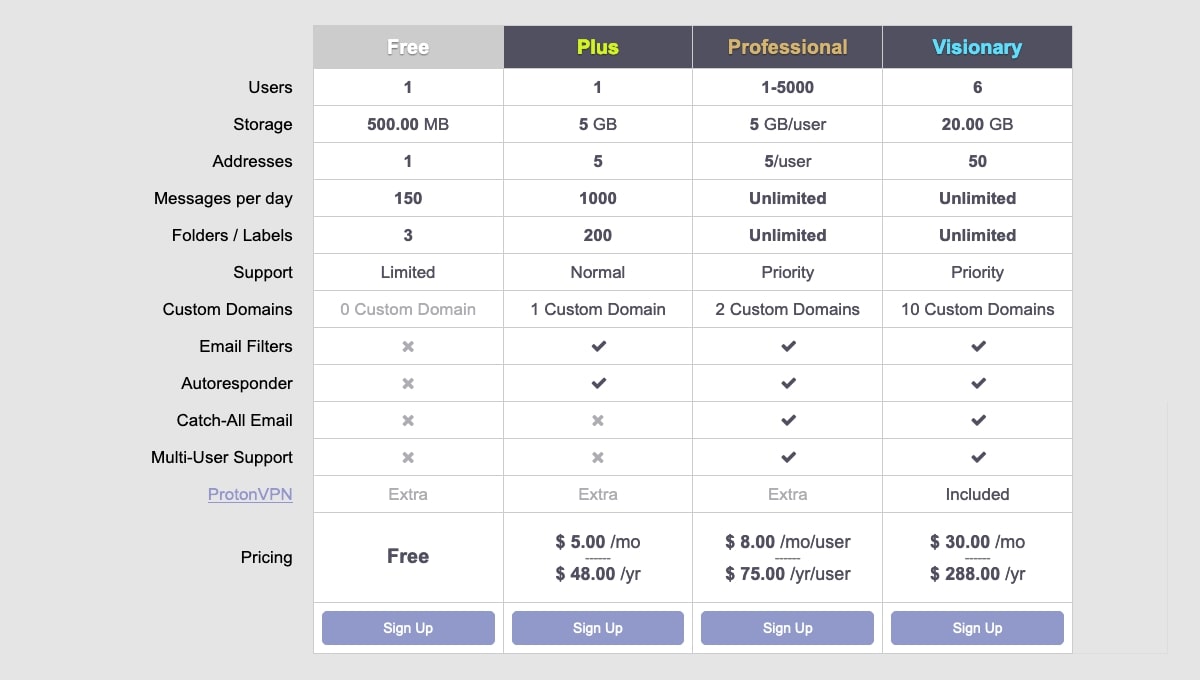
G Suite has three plans—Basic, Business, and Enterprise—that range in price from $6/month per user up to $25/month. Email storage for the Basic plan is limited to 30 GB, while the other two plans have unlimited storage.
Protonmail’s prices are cheaper, but G Suite offers far more storage space, which might be worth paying extra for, given how quickly mailboxes can fill up.
Verdict
Both Protonmail and Gmail have similar feature sets and can be used on any device. Gmail is a bit more expensive than Protonmail but includes much more storage space for emails. As Gmail is part of G Suite, it also comes with a large collection of other apps.
Although we like the security of Protonmail more than Gmail, the only reason it would be worth considering is if data privacy is a primary concern. Even so, you’d have to be prepared to give up the ability to be able to search the contents of your emails.
For most businesses, Gmail is likely to be the better choice for a professional email service.
- Read our guide to the best email providers
- Our full Protonmail review
from TechRadar - All the latest technology news https://ift.tt/2F2dmtO
via IFTTT
0 التعليقات: